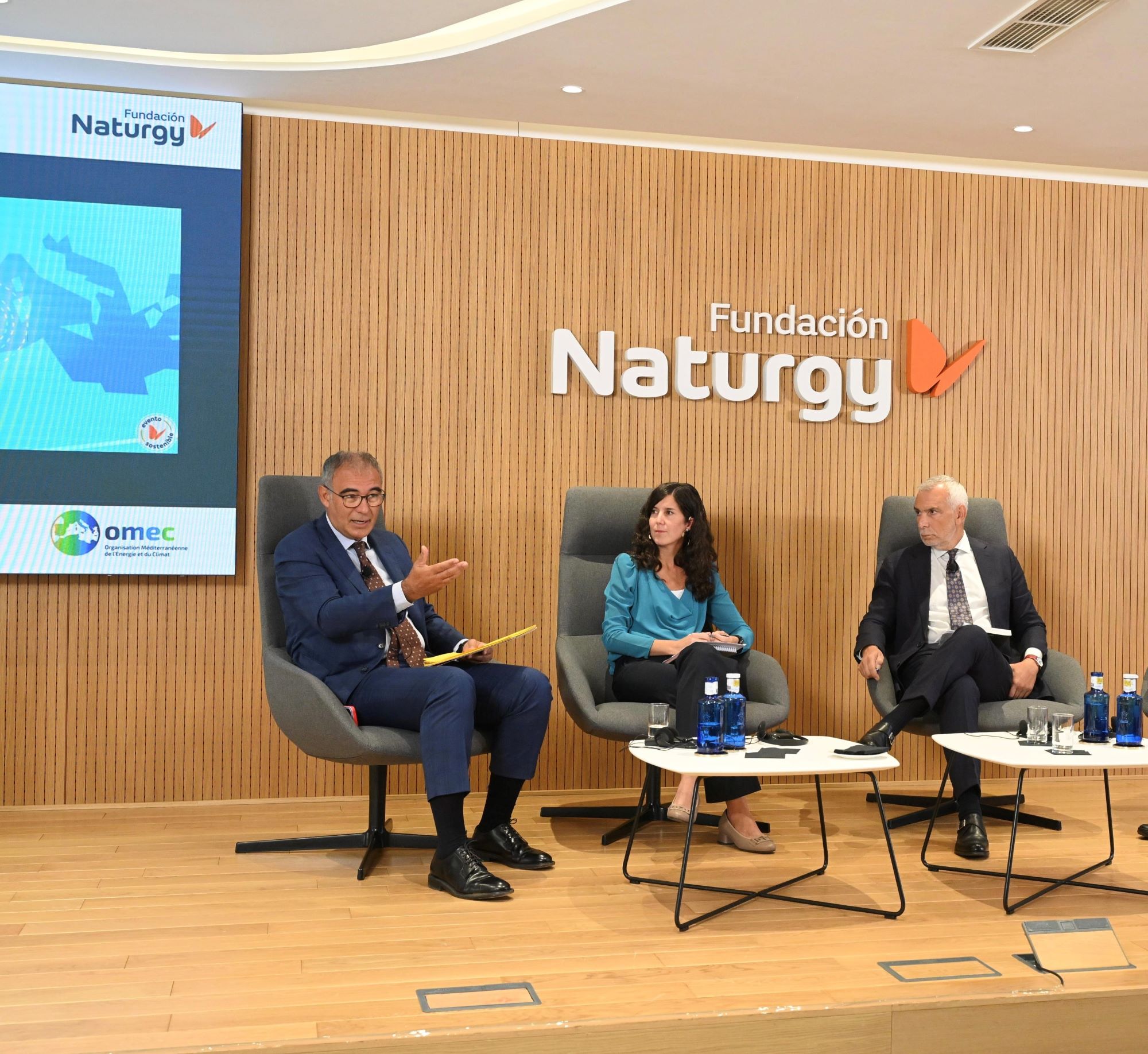The Mediterranean will need an investment of 6.8 trillion euros to reach climate neutrality by 2050
OMEC’s analysis highlights renewable gases and hydrogen as viable options to reduce fossil fuel imports by 40% by 2030.

The ‘Mediterranean Energy Perspectives 2025’ report, prepared by the Organisation Méditerranéenne de l’Energie et du Climat (OMEC), was presented today at a conference closed by Chairman & CEO of Naturgy, Francisco Reynés.
Reynés stressed that “energy is an increasingly important issue for society and the economy, and has been at the heart of our development for years. The conclusions of the study remind us that collaboration is essential: the opportunity offered by energy in the Mediterranean is to cooperate so that it does not become a bottleneck and so that different industries can access the resources they need”. Reynés also focused on investment, assuring that “the role of the European Union is key to guaranteeing a framework that allows energy companies to move forward. We must have hope but, above all, determination to make decarbonisation a reality at affordable prices”. He concluded by stating that “it is urgent to invest in transport, transmission, distribution and raw materials in order to have a diversified energy mix and to meet our objectives”.
The ‘Mediterranean Energy Perspectives 2025’ report reveals that the Mediterranean is facing an energy and climate challenge marked by a strong dependence on fossil fuels, high geopolitical vulnerability and increasing climate risks. Against this, the paper sets out two possible alternatives for achieving climate neutrality by 2050: an extension of current trends with relative emissions reductions and a persistent reliance on fossil fuels (Reference Scenario); and the alternative of achieving neutrality by boosting energy efficiency, electrification and the mass deployment of renewables (ProMED Scenario).
The transition to a carbon-neutral Mediterranean energy system will require unprecedented levels of investment, although OMEC experts point out that the cost of inaction could be much higher. Energy investments to 2050 must be 6.8 trillion euros in the ambitious ProMED Scenario. Almost double the 3.7 trillion euros required in the more conservative Reference Scenario. While this represents an 87% increase, it would be only 1.1% of annual regional GDP, an achievable ambition compared to the growing risks of climate instability and energy insecurity.
Furthermore, in the ProMED Scenario, the report states that electricity would cover 59% of final energy consumption, compared to 22% today, and renewables would account for 79% of power generation, reducing emissions by 90% compared to 1990. The paper also highlights the role of gas in the transition, considering that renewable gases and hydrogen would be viable options to reduce net fossil fuel imports by 40% by 2030 and make the region a net exporter by the 2040s.
Houda Ben Jannet, Director General of OMEC, offered the organisation’s comprehensive vision of the energy landscape in the Mediterranean region. “This report is not just a perspective, but a strategic compass to help the region realign its priorities and act with determination. The Mediterranean has the resources and experience necessary to build a more secure, competitive and sustainable energy system. The transition will be complex and demanding, but the direction is clear. The closer we get to the ProMED scenario, the more tangible the benefits will be, from increased energy security and economic opportunities to real improvements in people’s daily lives. This edition is a call to increase ambition, deepen cooperation and accelerate investment across the region”.
Approach to energy transition in the Mediterranean
The report presentation was followed by a round table discussion with the participation of Stefano Sannino, acting director general for the Middle East, North Africa and the Gulf of the European Commission; Paula Ceballos Coloma, representative of the European Commission in Spain; and Marco Piredda, vice-president of the OMEC Strategy, Governance and Cooperation Committee.
Stefano Sannino stated that “the vast renewable potential of the Mediterranean can become a pillar of our shared green transition. Through the Trans-Mediterranean Energy and Clean Tech Cooperation (T-MED) initiative, the European Union is turning this vision into action, linking investment, reforms and industrial cooperation to build a resilient and just Euro-Mediterranean energy space”.
Paula Ceballos Coloma pointed out the critical aspect that is often forgotten: raw materials. “In the south of the European Union we have sun and wind, but we do not have the necessary materials for clean energy, which makes us dependent on countries like China. We are talking about lithium, cobalt, copper, among many others, the scarcity of which will be a problem due to the high demand we foresee. Therefore, the European Union has already passed legislation in this regard and aims to be able to process these materials in Europe. To this end, international collaboration is essential to diversify the supply chain and to implement strategic projects between the two shores of the Mediterranean”.
Marco Piredda pointed out that “at this crucial juncture for the Mediterranean, the new edition of the Mediterranean Energy Perspectives 2025 addresses a region undergoing profound changes in energy, connectivity and constantly evolving political and environmental pressures”. According to Piredda, “this situation calls for action without delay: transformative progress depends on adopting practical solutions and achieving a real balance. Ensuring energy security, together with building strong social and economic foundations, should be the driving force of the transition ahead”.
At the opening of the conference, Rafael Villaseca, Chairman of the Naturgy Foundation, stressed that “in a context of great complexity and growing challenges, it is essential to provide the energy sector with data, reports and analyses that serve as a basis for decision-making. This is why OMEC has established itself as an undisputed reference for understanding the challenges in the Mediterranean region, and this report provides a comprehensive overview of the energy landscape up to 2050, addressing current and future scenarios. Aspects such as energy security, decarbonisation, the integration of renewables and collaboration between Mediterranean countries are priorities. This analysis sets out a truly ambitious roadmap that drives innovation and leverages our common resources”.
Share